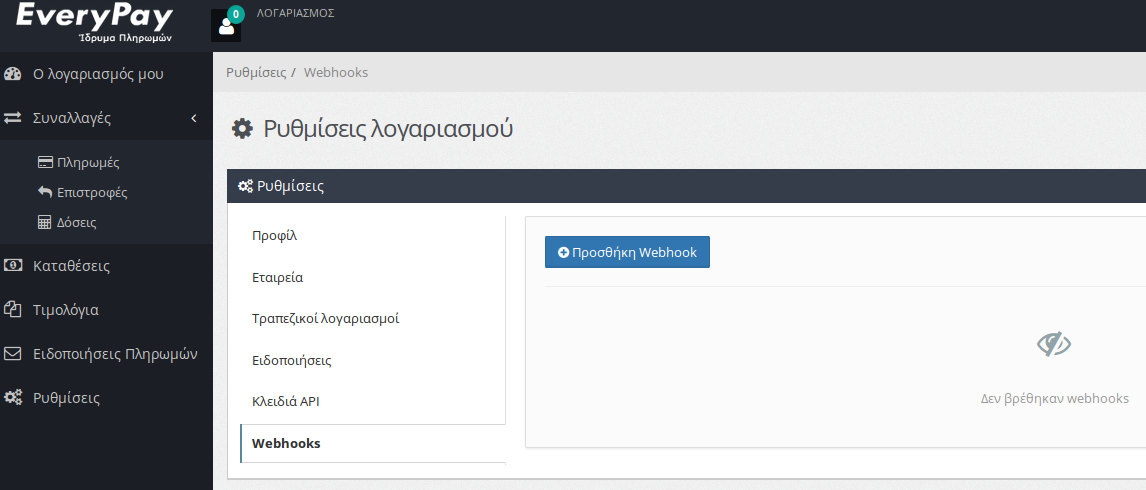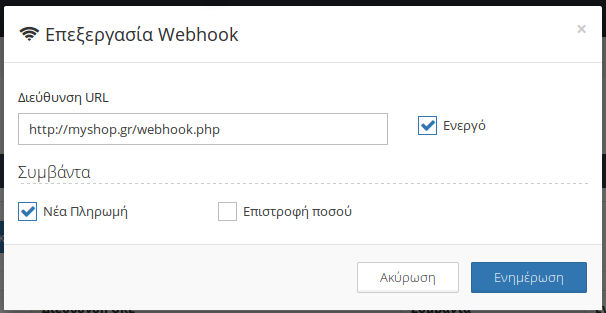WebHooks
When to use?
Webhooks is a feature provided to the merchant, to be notified at a provided url about events, such as payments or refunds. The merchant must submit a url in the relevant form of their EveryPay dashboard. The response of the EveryPay API will be submitted via POST method to provided url.
The events that a merchant can choose for webhooks are:
- New payment
- Refund
For example, after a successful payment, the API will send – via POST method – to the url the trader declared a JSON payload, with the following information:
{
"token": "pmt_ETF9EaZURr3l6mC8n6TzClBS",
"date_created": "2015-11-09T19:03:58+0200",
"description": "Order #A-777",
"currency": "EUR",
"status": "Captured",
"amount": 10480,
"refund_amount": 0,
"fee_amount": 272,
"payee_email": null,
"payee_phone": null,
"refunded": false,
"refunds": [],
"installments_count": 0,
"installments": [],
"card": {
"expiration_month": "08",
"expiration_year": "2016",
"last_four": "0003",
"type": "Visa",
"holder_name": "John Doe",
}
...
}
From the above payload, the merchant is able to retrieve useful information regarding this new payment, such as the token, the date of the transaction, the amount, any refunds, installments, and non-sensitive card details used for the transaction (the last 4 digits, the cardholder name, etc).
Installation
Go to your account settings page from the Dashboard interface (https://dashboard.everypay.gr) – after logging in with your credentials. Select Webhooks from the account settings page.

You may add as many webhooks as you want. Just submit the url and the type of events for that webhook.

You can manage your webhooks from the list at any time, as shown below.

Example Code
The url provided by the merchant for the webhooks, could simply be run by a server that accepts the PUT request with a JSON string, store it as text or decompose it into its individual parts, and handle them as the logic requires. An example of such code in PHP.
<?php
//retrieve data from PUT request
$input = @file_get_contents("php://input");
//either just save entire string
file_put_contents("/tmp/newEvent.txt", $input);
//or retrieve the token and use it as an id somewhere
$payload = json_decode($input);
file_put_contents("/tmp/newEvent".$payload->token.".txt", $input);